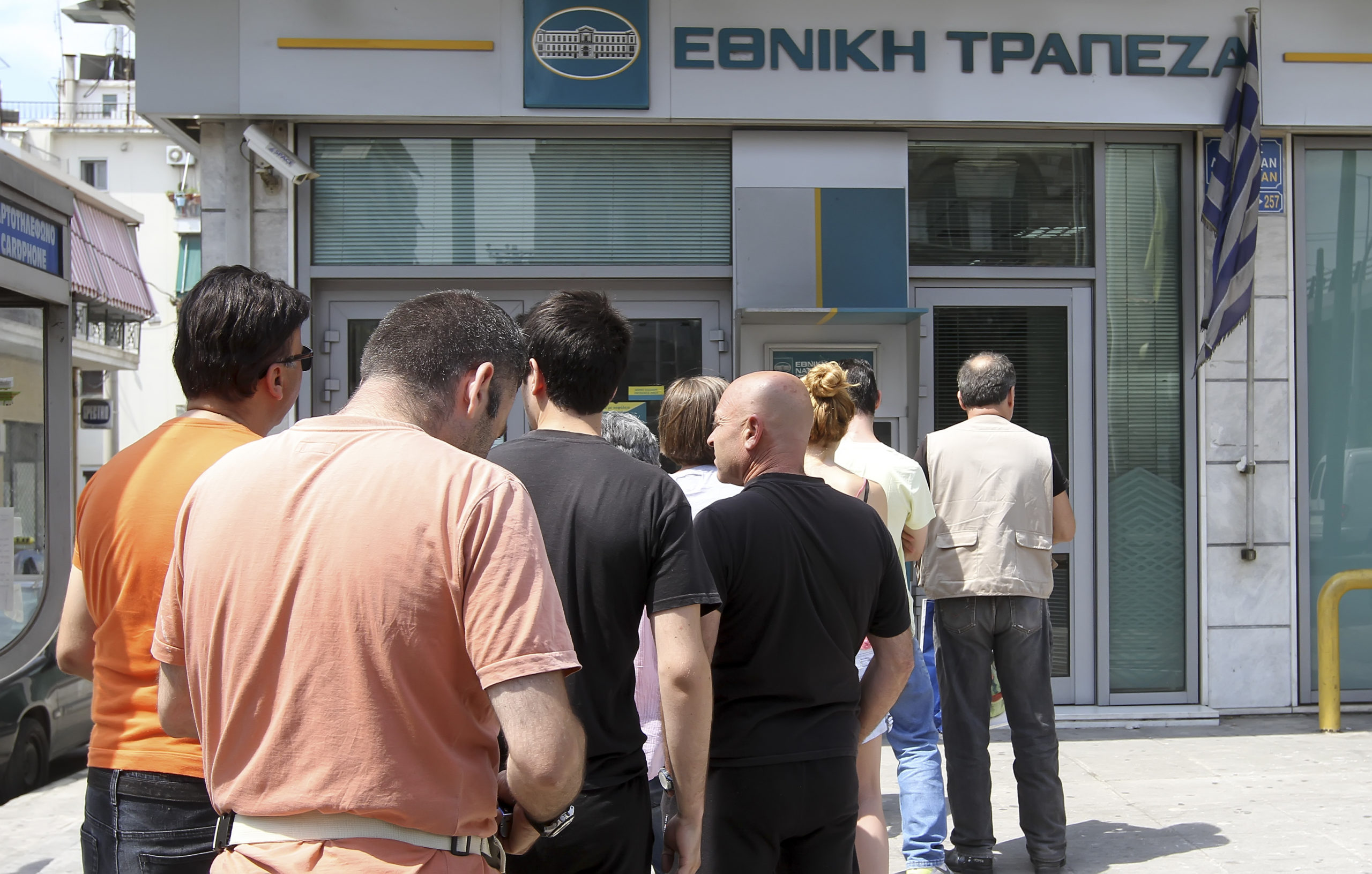Recent cash withdrawals from Greek banks have been called a bank jog. But now, with debt talks stalled and a Sunday referendum on the bailout, that jog has become a bank run.
Because ATMs are emptying and cash withdrawals are accelerating, the Greek government has ordered banks to close their doors for six days or perhaps longer. Only tourists with foreign based credit cards can execute financial transactions. Domestically, ATMs can be used for a max of €60 (if they have any cash).
Expressing his distress, one 67 year old retiree said, “I want Tsipras to tell me how I am going to make it through the week with €10 in my bag with rent coming up…”
Where are we going? To why banks are important.
Paying the Bills During the 1933 U.S. Bank Holiday
On March 6,1933, only 36 hours after becoming President, Franklin Roosevelt said that no American could access any banks or banking services at least through March 9 when Congress would meet to write emergency legislation. He called it a bank holiday. Resembling Greece, a bad banking problem had gotten worse very quickly and the President had to act.
Imagine getting your paycheck but not being able to cash it. One Minnesota store told customers, “Caught Short of Cash in the Bank Holiday? Your Charge Account Will Tide You Over.” Railroads let people know they would not leave any traveler stranded. In El Paso, Texas, the First Baptist Church asked for I.O.U.’s in its collection plates. Faced with traffic violations in a Bronx, NY court, 28 people opted for a night in jail rather than handing over cash for a fine. And, the makers of Pebeco Toothpaste said in an ad, “To back our faith in the current emergency program, we stand ready to keep millions of American families supplied with toothpaste…Get three tubes. Take three months to pay.”
Only the IRS said it would still accept checks.
Our Bottom Line: Financial Intermediaries
Like the U.S. in 1933, during their bank “holiday” people in Greece will have cash problems that relate to everyday food and clothing purchases, public transportation, church collection plates, court fines and tax collection. Add to that list all business to business transactions and we still would only have begun to display the crucial role of banks as financial intermediaries.
Think though of the journey of a paycheck. From a business to a bank to you. Then, to a retailer to a dividend check to a bank deposit to a loan to a business. We could just say that the banking system acts like the human heart, pumping life to our economy.
In Greece, except for tourists, that heartbeat has stopped.






